News Articles
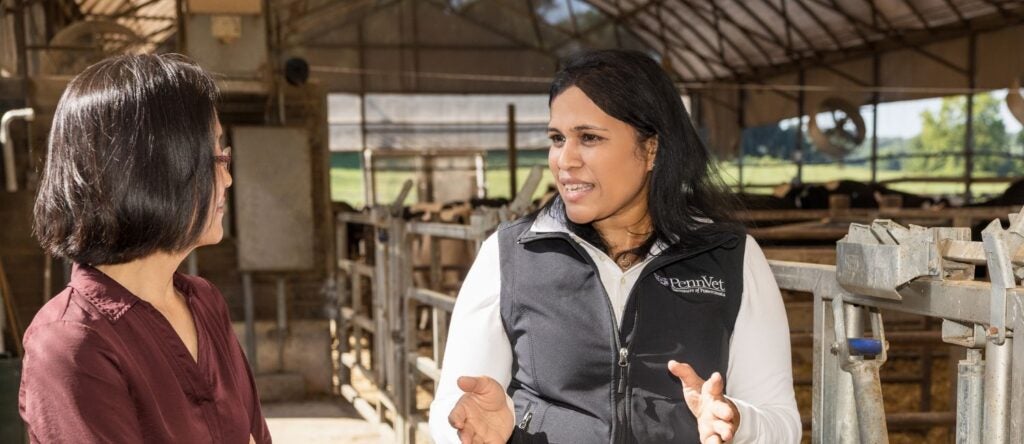
Penn Vet Scientist Receives More Than Half a Million Dollars For Research and Development of Mitigation Technology to Halt Methane Emissions from Dairy Cattle
Funding from Gerstner Philanthropies will study effects of probiotic supplement to prevent methane production in commercial herds.

A hopeful time for Cryptosporidium research (link is external)
Boris Striepen of Penn Vet organized the First Biennial Cryptosporidium Meeting, bringing together researchers and clinicians from around the world to discuss the problems and progress around the parasite and…
4 out of 5 autoimmune disease patients are women. New study offers clue as to why (link is external)
Dr. Montserrat Anguera talks about autoimmune diseases.
Why Do Women Have More Autoimmune Diseases? Study Points to X Chromosome (link is external)
Dr. Montserrat Anguera comments on this new research.
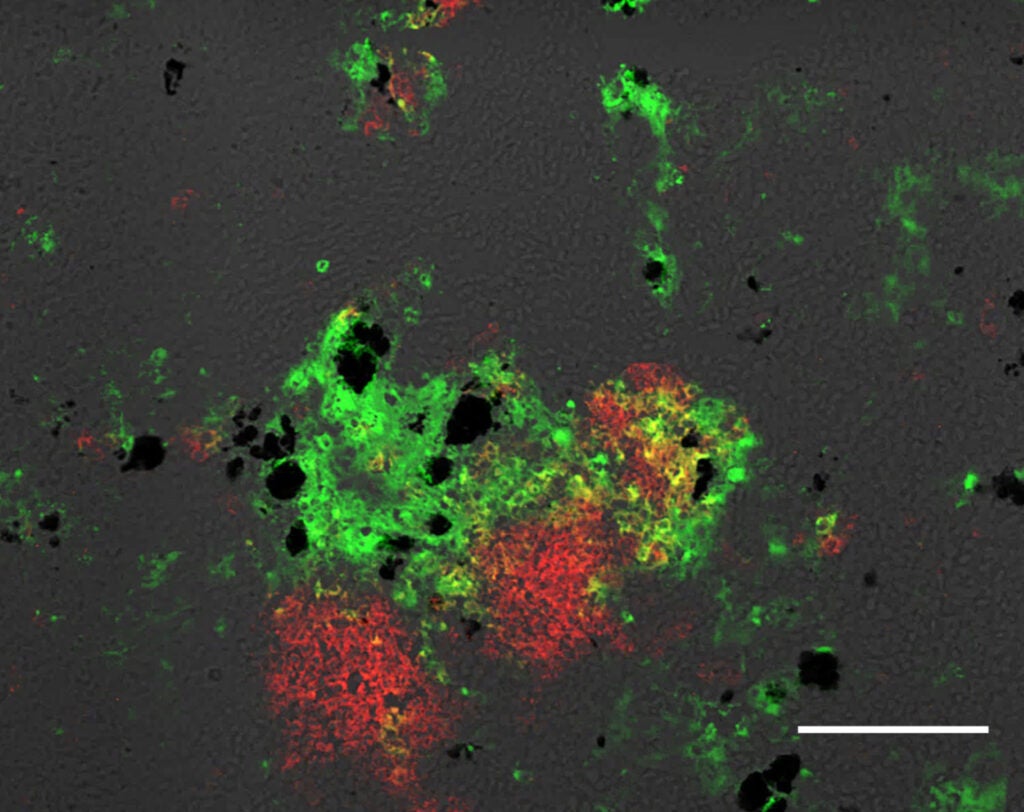
Scientists at the University of Pennsylvania’s School of Veterinary Medicine Shed New Light on the Evolution of Adaptive Immunity in Cold-Blooded Vertebrates
[December 1, 2023; Philadelphia, PA] – Upon infection or immunization, all jawed vertebrate species generate proteins called antibodies that bind and neutralize pathogens. Strong and long-lasting antibody responses in warm-blooded…
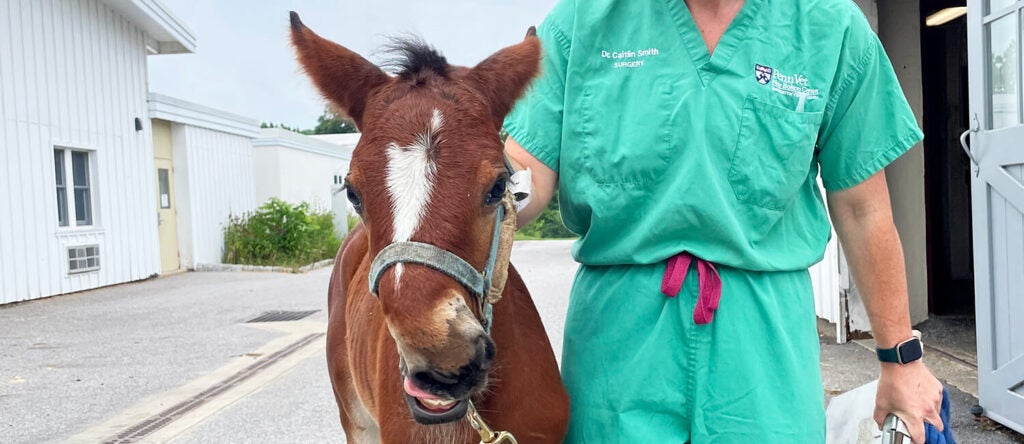
Wry Not’s Triumph Over a Twisted Fate
A filly born with a rare deformity fights her way to health and into the hearts of New Bolton Center’s care team.
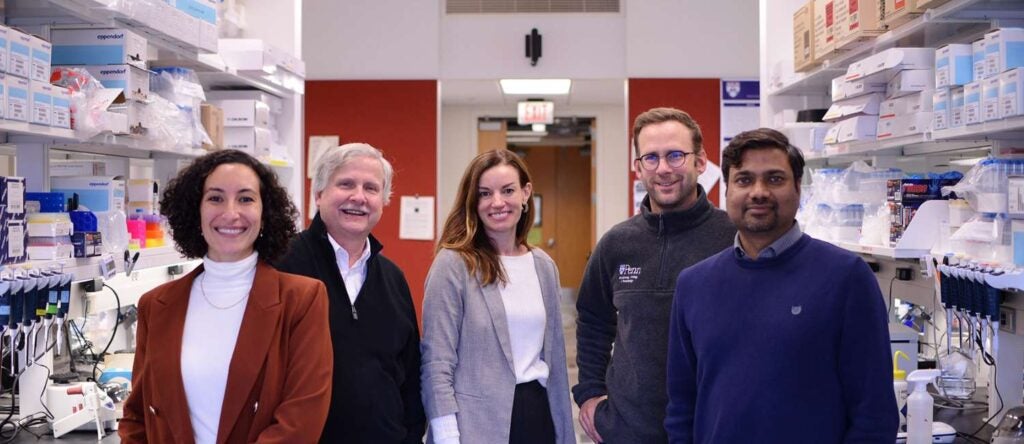
Uncovering the role of skin microbiome and immune response in cutaneous leishmaniasis (link is external)
Two new studies led by Phillip Scott of the School of Veterinary Medicine and Elizabeth Grice of the Perelman School of Medicine demonstrate how bacteria found in leishmaniasis skin lesions…
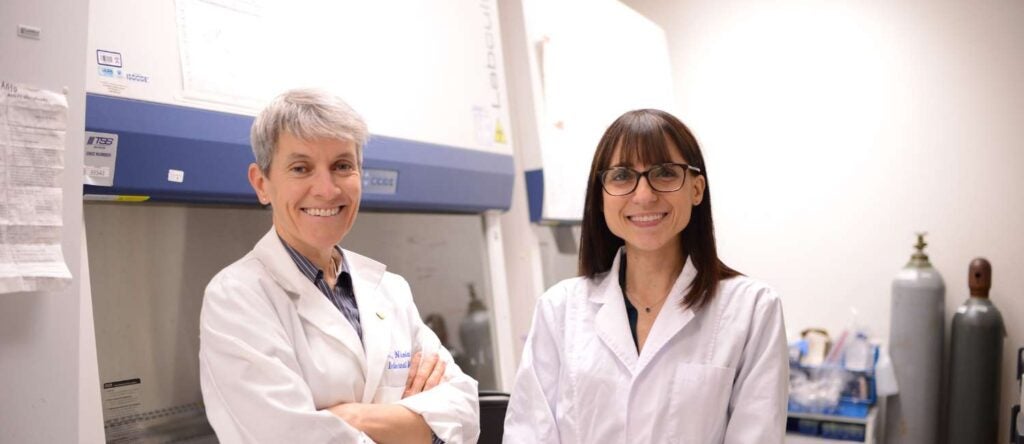
Study shows promise for iNKT cell platform to treat cancer (link is external)
Researchers from the School of Veterinary Medicine and Perelman School of Medicine have shown that invariant natural killer T cells from a healthy donor can persist in MHC-mismatched canines, demonstrating…
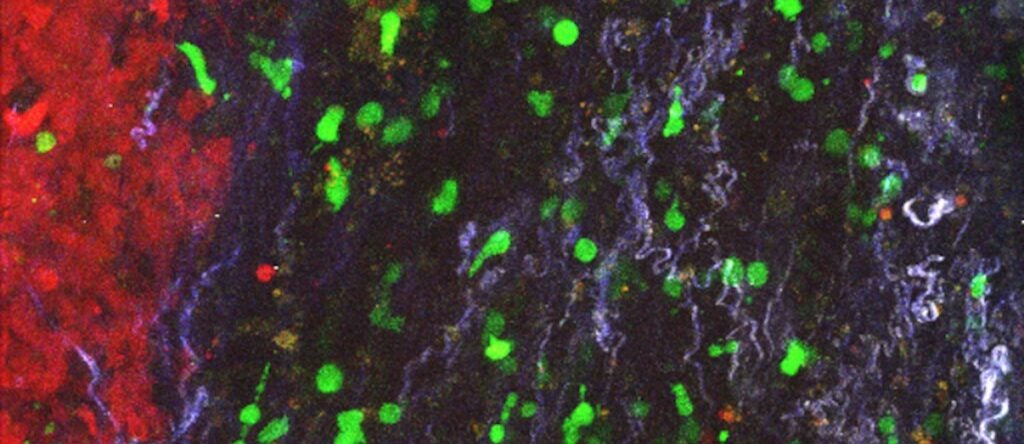
Removing the barrier surrounding solid tumors clears path for T cells (link is external)
Penn researchers uncover a new way to target solid tumors. Using CAR T cells to remove cancer-associated fibroblasts surrounding pancreatic tumors allows T cells to infiltrate and attack the tumor…

Genetic switch turns tumor suppressor into oncogene in colorectal cancer (link is external)
Researchers from the School of Veterinary Medicine have shown that an enzyme that suppresses early-stage colorectal cancer switches to become an oncogene as the cancer progresses.
Sort By
- Research Laboratories (1)
- ASMG Laboratory - Microbial Genomics (4)
- Lengner Laboratory (3)
- New Bolton Center PADLS (7)
- Anguera Laboratory (6)
- Wang Laboratory (5)
- Puré Laboratory (1)
- Ortved Orthopedic Regenerative Medicine Laboratory (6)
- Wolfe Laboratory (1)
- Dou Laboratory (5)
- Lennon Mucosal Immunology Laboratory (1)
- Brinster Laboratory of Reproductive Physiology (2)
- Equine Pharmacology Research Laboratory (5)
- Hunter Laboratory (5)
- Sunyer Laboratory (4)
- Harty Laboratory (4)
- Mason Immunotherapy Research Laboratory (3)
- Marshak Dairy (1)
- Volk Laboratory (1)
- Sylvia M. Van Sloun Laboratory (1)
- Scott Laboratory (1)
- Sasaki Laboratory (1)
- Vaughan Laboratory (1)
- Modzelewski Laboratory (1)
- Research Institutes (16)
- Research Programs (2)
- Research Centers (1)
- Research Cores (2)
